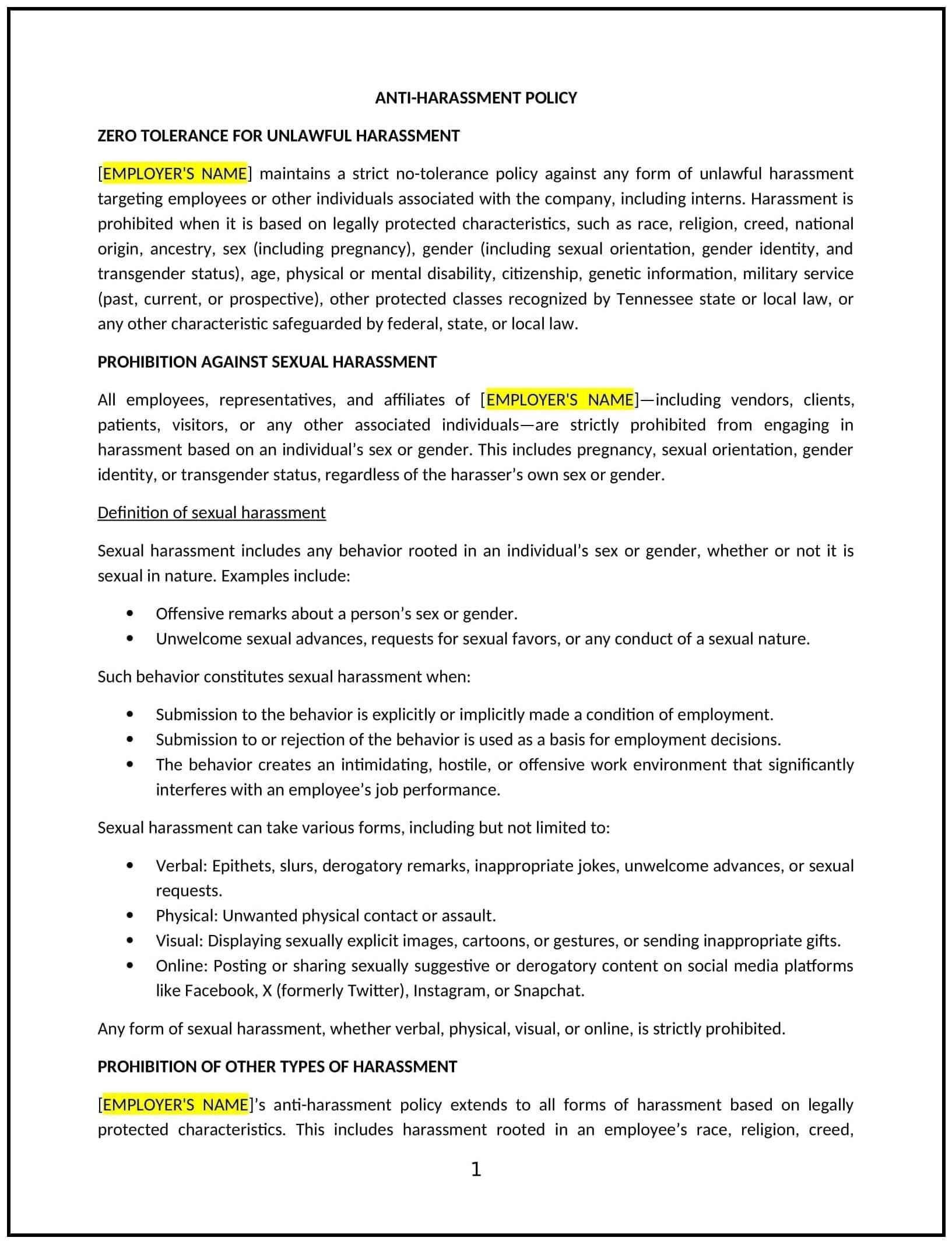Got contracts to review? While you're here for policies, let Cobrief make contract review effortless—start your free review now.

Customize this template for free
Anti-harassment policy (Tennessee)
This anti-harassment policy is designed to help Tennessee businesses create a safe and respectful work environment by addressing and preventing harassment. It outlines procedures for reporting incidents, investigating complaints, and taking corrective action.
By adopting this policy, businesses can promote a positive workplace culture, reduce legal risks, and protect employee well-being.
How to use this anti-harassment policy (Tennessee)
- Define harassment: Clarify what constitutes harassment, such as verbal abuse, discrimination, or unwanted physical contact.
- Establish reporting procedures: Provide steps for employees to report harassment, including anonymous options.
- Set investigation protocols: Outline how complaints will be investigated, including timelines and confidentiality measures.
- Address corrective action: Explain the consequences for harassment, such as warnings, suspension, or termination.
- Train employees: Educate employees on recognizing and preventing harassment.
- Review and update: Assess the policy annually to ensure it aligns with evolving business needs and workplace dynamics.
Benefits of using this anti-harassment policy (Tennessee)
This policy offers several advantages for Tennessee businesses:
- Promotes a positive workplace culture: Encourages respect and collaboration among employees.
- Reduces legal risks: Helps businesses address harassment before it escalates into legal disputes.
- Protects employee well-being: Creates a safe environment where employees feel valued and supported.
- Enhances productivity: Reduces distractions and stress caused by harassment.
- Builds trust: Demonstrates a commitment to addressing employee concerns and maintaining a respectful workplace.
Tips for using this anti-harassment policy (Tennessee)
- Communicate the policy: Share the policy with employees and include it in the employee handbook.
- Provide training: Educate employees on recognizing and preventing harassment.
- Monitor compliance: Regularly review complaints to ensure adherence to the policy.
- Address issues promptly: Take corrective action if harassment is reported or observed.
- Update regularly: Assess the policy annually to ensure it aligns with evolving business needs and workplace dynamics.